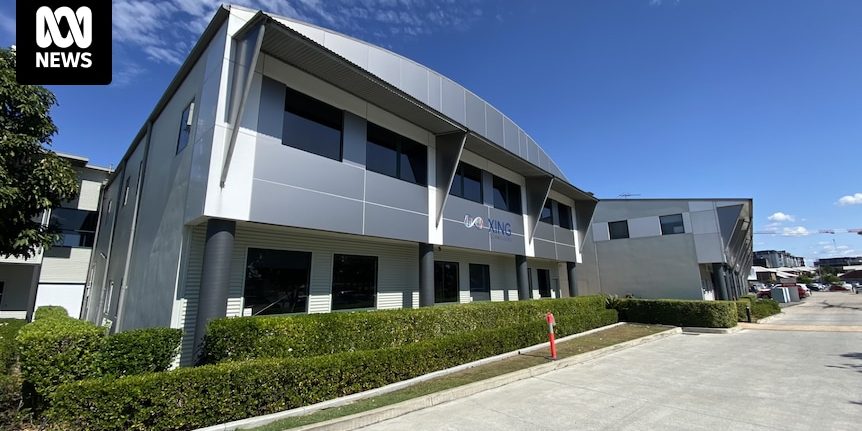Curing cancers using genetic sequencing, rapid tests for livestock diseases, a near infallible COVID-19 test, more refined medicinal marijuana — Xing Technologies promised so much.
The Queensland biotech company founded by prominent Brisbane oncologist and researcher Paul Mainwaring, rode a wave of favourable publicity in the late 2010s.
Headlines like “game changer” and “breakthrough” were regularly used to describe the Queensland company’s research involving patents owned by the University of Queensland (UQ).
Offering lab tests to detect genetic alterations in cancer patients’ tumours to enable more specific treatment was just one of Xing’s developing fields of research.
Business identities invested, including the founder of Herron Pharmaceutical Euan Murdoch, Mancorp Homes building company owner Mark Forster and retired pharmacist and former federal minister John Hodges.
Some of Dr Mainwaring’s patients also invested. One was Brisbane greengrocer Sam Coco who attributed his recovery from cancer to Dr Mainwaring.
Brisbane oncologist and researcher Paul Mainwaring, pictured in 2020 at Xing laboratory. (Supplied)
In 2020 shareholders were told the company was valued at more than $200 million and some investments had gone up nearly 100 per cent.
A prominent politician dropped in and donned a Xing lab coat for a photo shoot in the laboratory and federal and international governments came on board with research funding.
The United States Food and Drug Administration backed the company’s testing technology with a $1.4 million grant in 2020 as did Australia’s Department of Industry with a $2.4 million grant for Xing’s development of a livestock testing device which could return rapid results on-farm, and the Queensland government offered to provide up to $1.49 million to develop a COVID-19 test.
“It could be a real game-changer,” Queensland’s then Innovation Minister Kate Jones said when announcing the funding in 2020.
Offices empty
Now, Xing’s gleaming two-storey offices at Seventeen Mile Rocks in Brisbane’s west sit empty, stripped of the expensive laboratory equipment and a liquidator is poring over the parent company’s books raising concerns in reports filed with the Australian Securities and Investment Commission (ASIC) about whether it had traded insolvent for more than a year.
Questions are also being asked about what government funding can be recovered and what happened to the cancer testing services which were provided through the Xing Technologies business.
The company’s “genius” founder Dr Mainwaring has faded from public view after being found to have engaged in professional misconduct over his treatment of an elderly cancer patient who died in 2018.
The Xing Technologies offices have been stripped of expensive laboratory equipment. (Supplied)
And millions of dollars from investors may have been lost in the collapse which has divided those involved.
Some have claimed the failure confirms the difficulties of trying to establish a biotech company in Australia while others raised concerns about the management of the venture.
“We don’t seem like we are going to get anything back,” Mr Hodges said.
The Xing Group was founded by Dr Mainwaring in late 2017 to specialise in the “transformative diagnosis and monitoring technologies for cancer and disease”, according to the report compiled by Brisbane-based administrator Bill Karageozis.
Services offered included cancer care, rapid nucleic acid extraction, protein detection diagnostics and “nanoparticle capture agents to identify and prevent the spread of infectious diseases,” Mr Karageozis’s report states.
But less than a year after the company launched, one of Dr Mainwaring’s patients died in controversial circumstances.
The 76-year-old cancer patient was alleged to have suffered fatal side effects from immunotherapy treatment prescribed to him by Dr Mainwaring.
An investigation was undertaken by the Health Ombudsman and late last year the Queensland Civil and Administrative Tribunal (QCAT) found Dr Mainwaring’s actions to have constituted “professional misconduct” in relation to the treatment of the patient.
Within four months an administrator was appointed to Xing Holdings Group by a secured party – a company that had Mr Forster as a director.
Shortly afterwards the company was put into liquidation.
No warnings for shareholders
Smaller shareholders were baffled. Many contacted by the ABC say they had no warning Xing was in trouble and have been left asking how a $200 million company could fail so quickly.
The administrator, now liquidator, Mr Karageozis raised questions about the company’s management in his reports submitted to ASIC.
Mr Karageozis attributed the company’s failings to “poor strategic management of the business, trading losses and cashflow issues” in a report he compiled as administrator in late 2022.
The report states that from reviewing questionnaires completed by company officers, he believed the major reason for failure was due to an inability to generate sufficient cash flow.
He estimated that the company’s total liabilities were more than $6 million.
He alleged the company may have traded insolvent since June 30, 2021.
When he was appointed, Mr Karageozis said he was aware of claims against the company for $448,183 that appear to have occurred after the company allegedly became insolvent.
If appointed as liquidator, he stated he might institute proceedings against the directors responsible for the amount of $448,183 with an estimated potential recovery of 50 per cent after costs subject to directors having sufficient assets.
He alleged the directors might have breached duties for “care and diligence, obligation to keep financial records and failure to prevent insolvent trading”.
The allegations have been vigorously denied by current and former directors.
At the time of the company going into liquidation, two directors remained on the board, Dr Mainwaring and Mr Forster.
The ABC has been unable to contact Mr…

